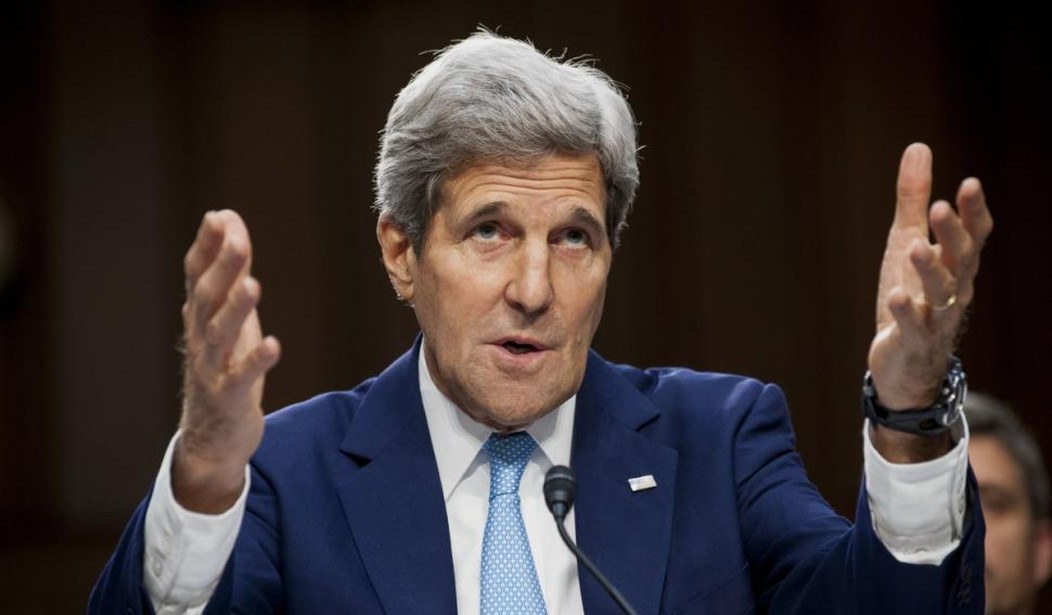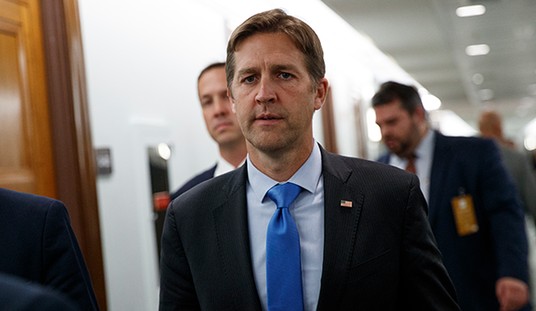WASHINGTON — Secretary of State John Kerry tried to persuade a skeptical Senate Foreign Relations Committee that the administration’s strategy is on top of the ISIS crisis today as one prominent senator accused him of playing a “political game” with Congress.
The exchanges were almost as testy between Chairman Robert Menendez (D-N.J.) and Kerry as they were with Ranking Member Bob Corker (R-Tenn.) and the secretary of State, leading Sen. Barbara Boxer (D-Calif.) to blast her colleagues for being too tough on the cabinet member.
“I think it is shocking and a sad state of affairs that we heard just now such angry comments aimed at you, Mr. Secretary, and through you, at our president, instead of at ISIS,” Boxer said. “I think it’s shocking. I’m actually shaking and trembling.”
Kerry promised senators that the Obama administration has “been focused on ISIL since its inception as the successor to al-Qaeda of Iraq in 2013.”
“Early this summer, the ISIL threat accelerated when it effectively erased the Iraq-Syria border and the Mosul damn fell. The president acted immediately. Deliberately and decisively, we further surged the ISR missions immediately. We set up joint operation centers in Baghdad in Erbil immediately, and our special forces conducted a very detailed, in-depth assessment of Iraqi security forces and Kurdish forces,” Kerry said.
“We did that purposefully without jumping, as some people wanted us to, because we wanted to understand what is the Iraqi capacity of the Iraqi army to fight? How many brigades having seen what happened in Mosul are still prepared to engage? Are we getting into something that, in fact, we don’t have the answers to with respect to who can do what?”
He spoke of the need to “repudiate the gross distortion of Islam that ISIL is spreading,” and said on a recent trip he was “very encouraged to hear that Saudi Arabia’s top clerics came out and declared terrorism a heinous crime under Sharia law and that the perpetrators should be made an example of.”
While touting a growing coalition of nations offering “strong support” to defeat ISIS, he indicated that the “willingness to help in some way” of “more than 30 countries and entities” he met with in Wales, Paris and Jeddah wouldn’t necessarily be through military assistance.
“So we have a plan. We know the players. Our focus now is in determining what each country’s role will be and how to coordinate those activities for success,” Kerry said.
“…This mission isn’t just about taking out an enemy on the battlefield; it’s about taking out a network, decimating and discrediting a militant cult masquerading as a religious movement. It’s similar to what we’ve been doing to al-Qaeda these last years.”
But Menendez wanted a clearer picture of how the administration saw the endgame. “In Iraq, we want a sovereign Iraq whose territorial integrity has been restored without the presence of ISIL,” the chairman said. “And in Syria?”
Kerry admitted their Syria plans over the past year “regrettably got sidetracked by a number of things.”
“No one reasonably can come from the administration and suggest that the ultimate goal, which is taking out this network, is not going to be a multi-year effort,” Menendez said, asking why the White House intended to rely upon the 9/11 or Iraq authorizations for military force to take action without Congress now.
Kerry said they determined they have authority because “good lawyers within the White House, within the State Department, who have examined this extremely closely, have come to the conclusion across the board that the 2001 AUMF, which says all necessary and appropriate force against those nations, organizations or persons responsible for 9/11, those who harbored such organizations or persons, to prevent future acts of international terrorism against the United States by such persons or organizations. It includes al-Qaeda… ISIL began as al-Qaeda.”
“I appreciate your ability as a former prosecutor and a gifted attorney to try to make the case,” Menendez said. “I will tell you that, at least from the chair’s perspective, you’re going to need a new AUMF.”
Corker was even sharper with Kerry, accusing him of playing a “political game” with Congress.
“Tell me what’s been accomplished. Who — what Arab Sunni nation is gonna have a ground force in Syria? What Arab Sunni country is gonna be flying in and bombing and doing missile raids with a Arab insignia on the side of the plane?” he asked.
Kerry told the ranking member lawmakers would “hear that at the appropriate time.”
“So we will have Arab Sunni countries participating in the ground effort in Syria?” Corker shot back.
“No, I didn’t say the ground effort,” Kerry replied. “And — and we’re — you know, right now the plan is to work through the — and our judgment is that we can be effective working in the way we are.”
Corker complained that the administration was “not giving any details because you don’t have them,” despite seeking approval from Congress.
“I’m confident there will be so many classified briefings that you’ll be tired of them,” Kerry said. “But, at the moment, we’re not gonna lay this out… until we have had a chance to work closely with all of these countries in order to make this as effective as possible.”
Menendez called out Kerry on reports “outed by the Ayatollah” this week of “back channel efforts” to engage Iran on fighting ISIS. Khamenei said the Islamic Republic was approached by the U.S. but rebuffed Washington.
“Iran is a regional instigator,” said Menendez, who has butted heads with the White House this year over Iran sanctions and nuclear negotiations. “It is a patron of the murderous Assad regime. It’s a sponsor of sectarian divisions inside of Iraq. It uses Iraq’s airspace to send troops and men into Syria.”
“And some of us are really concerned that — first of all, their end purposes are not our end purposes and secondly, that some of us are concerned that negotiations with Iran, you know, are affected by — to the extent that they express any desire to be helpful, they want to do it at the cost of concessions at the negotiating table.”
Kerry insisted that “not going to happen.”
On questioning later from Sen. Marco Rubio (R-Fla.), Kerry bristled at the idea of getting into “hypotheticals” about the strategy.
“I’m not going to get into hypotheticals, but you’re presuming that Iran and Syria don’t have any capacity to take on ISIL,” Kerry said of his pledge that “the president will not put American ground troops into Iraq.”
“I mean, who knows? I’m not going to get — I don’t know what’s going to happen here.”
“So what you’re saying now is that there is the opportunity, the potential that the U.S. would be coordinating with Iran?” Rubio asked.
“No, I never said anything about coordinating. If we’re failing and failing miserably, who knows what choice they might make,” Kerry snapped back. “You prepositioned this on the notion we’re failing. I don’t believe we’re going to fail.”









Join the conversation as a VIP Member